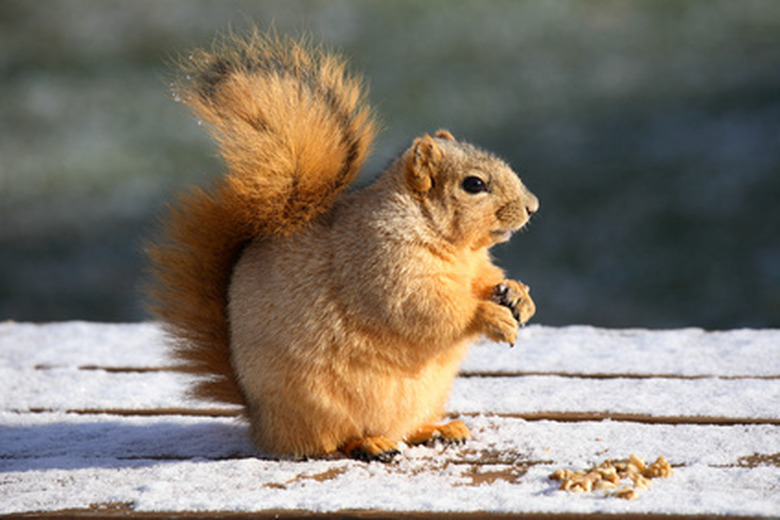Plants That Are Compatible With Black Walnut Trees
It's not the lack of a green thumb killing plants near that black walnut tree. "Choosing companion plants for walnuts is tricky because this genus is allelopathic–that is, the plants secrete a toxic substance that suppresses competing plants," notes garden author Toby Hemenway. Several species remain impervious to this substance, called juglone. Study the shade cast by the black walnut tree and set sun-loving, juglone-resistant plants well away from its canopy and shade- and juglone-tolerant botancials among the tree roots.
Fruit Plants
In the wild, shade-tolerant currants often grow under the canopies of walnut trees, according to Hemenway. Other juglone-resistant berry plants include elderberries and mulberries, provided they're planted at enough of a distance to get several hours of sun. Purdue University Extension also suggests black raspberries, cherries, crabapple (considered edible because the fruits make splendid jellies), persimmons and pawpaw trees.
- It's not the lack of a green thumb killing plants near that black walnut tree.
- " Other juglone-resistant berry plants include elderberries and mulberries, provided they're planted at enough of a distance to get several hours of sun.
Trees
Walnut-friendly evergreens suggested by Purdue's extension include juniper varieties, red cedar, hemlock and arborvitae. Deciduous trees that grow unfazed by walnuts include elm, hawthorn, hickory, sycamore, black locust, maple and oak.
Landscape Shrubs and Vines
Among the vines and shrubs Purdue recommends for planting near walnut trees are daphne, rose of sharon, wild rose, euonymous, forsythia, morning glory, viburnum, clematis, honeysuckle and autumn olive.
Groundcovers
Choices to cover the ground directly under a walnut tree or on the sunny side of the canopy include wild ginger, violets, Solomon's seal, sweet woodruff, Virginia creeper and pachysandra. For those who prefer lawns, Kentucky bluegrass growth isn't inhibited by juglone. Taller groundcover options include hostas, ferns, sweet Cicely and lamb's ears.
Vegetables
Although Purdue lists members of the Solanaceae (eggplant, tomato and peppers) family as too sensitive to juglone to plant near walnut trees, Hemenway says the experiment is worth trying. His reasoning is that in the wild, undomesticated members of the Solanaceae family, including wolfberry and a chile pepper relative called chiltepine, seem to thrive near black walnut trees. Purdue recommends some vegetables as compatible with walnuts. This list includes lima and snap beans, beets, squash, parsnips, carrots, corn and melons. It also suggests the sunflower relative Jerusalem artichoke, a double-duty plant that produces cheerful yellow flowers above ground and edible tubers below ground. The plants are perennial, provided you leave a few tubers behind after fall harvesting.
- Walnut-friendly evergreens suggested by Purdue's extension include juniper varieties, red cedar, hemlock and arborvitae.
- Although Purdue lists members of the Solanaceae (eggplant, tomato and peppers) family as too sensitive to juglone to plant near walnut trees, Hemenway says the experiment is worth trying.
Herbs and Flowers
For color and (in some cases) fragrance, try any of the following near black walnut trees: marigolds, zinnias, bee balm, coral bells, cranesbill, lungwort, pansies, phlox, hollyhocks, trilliums and tulips.
References
- "Gaia's Garden;" Toby Hemenway; 2000
- Purdue University: Black Walnut
